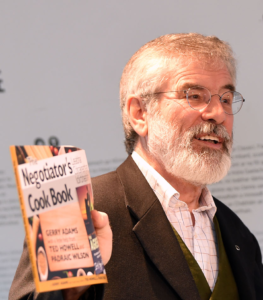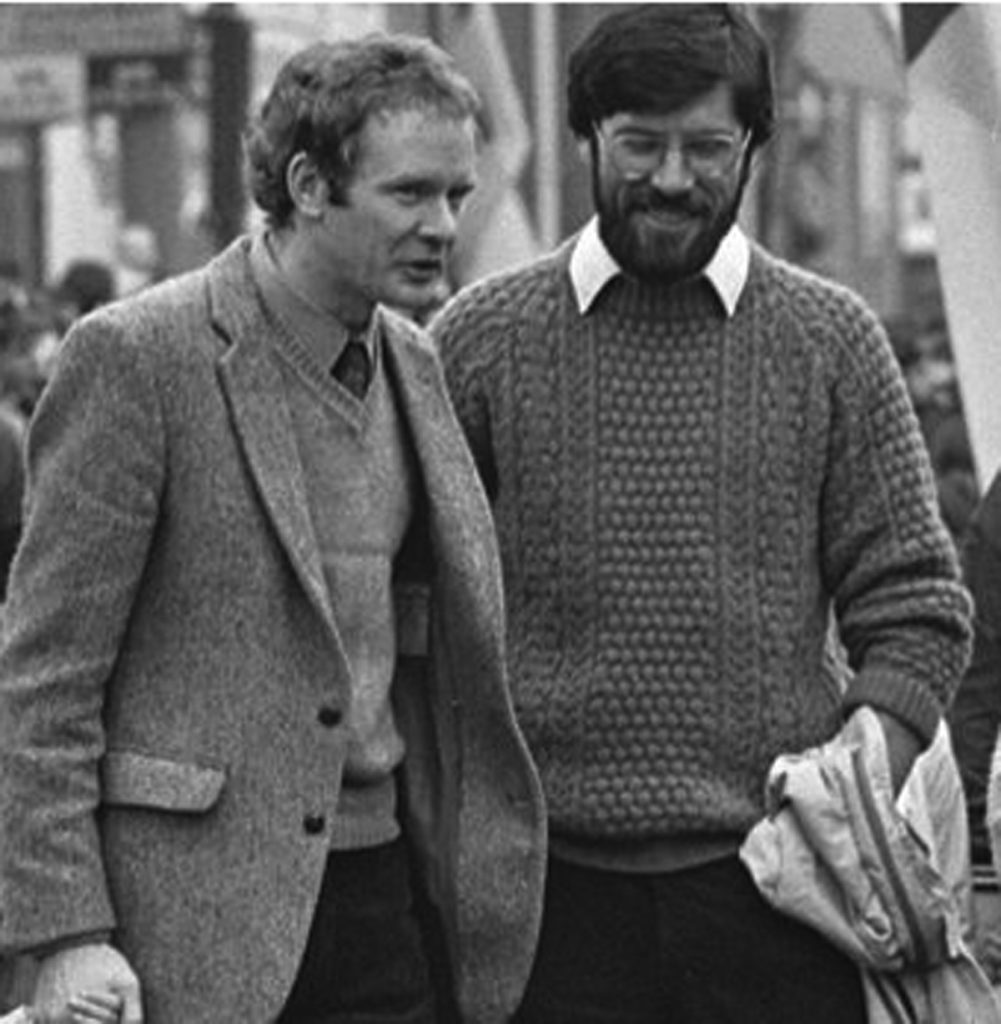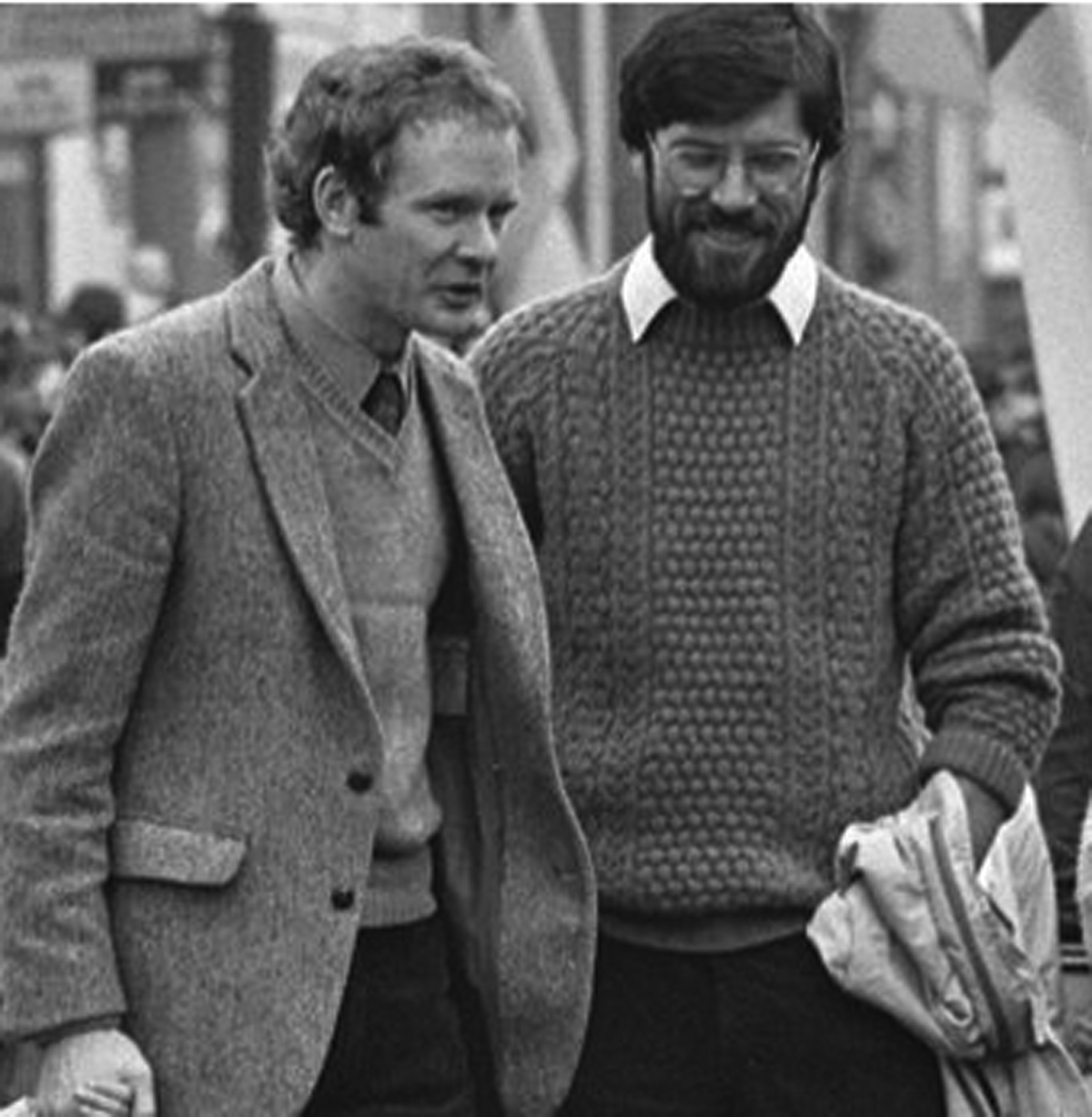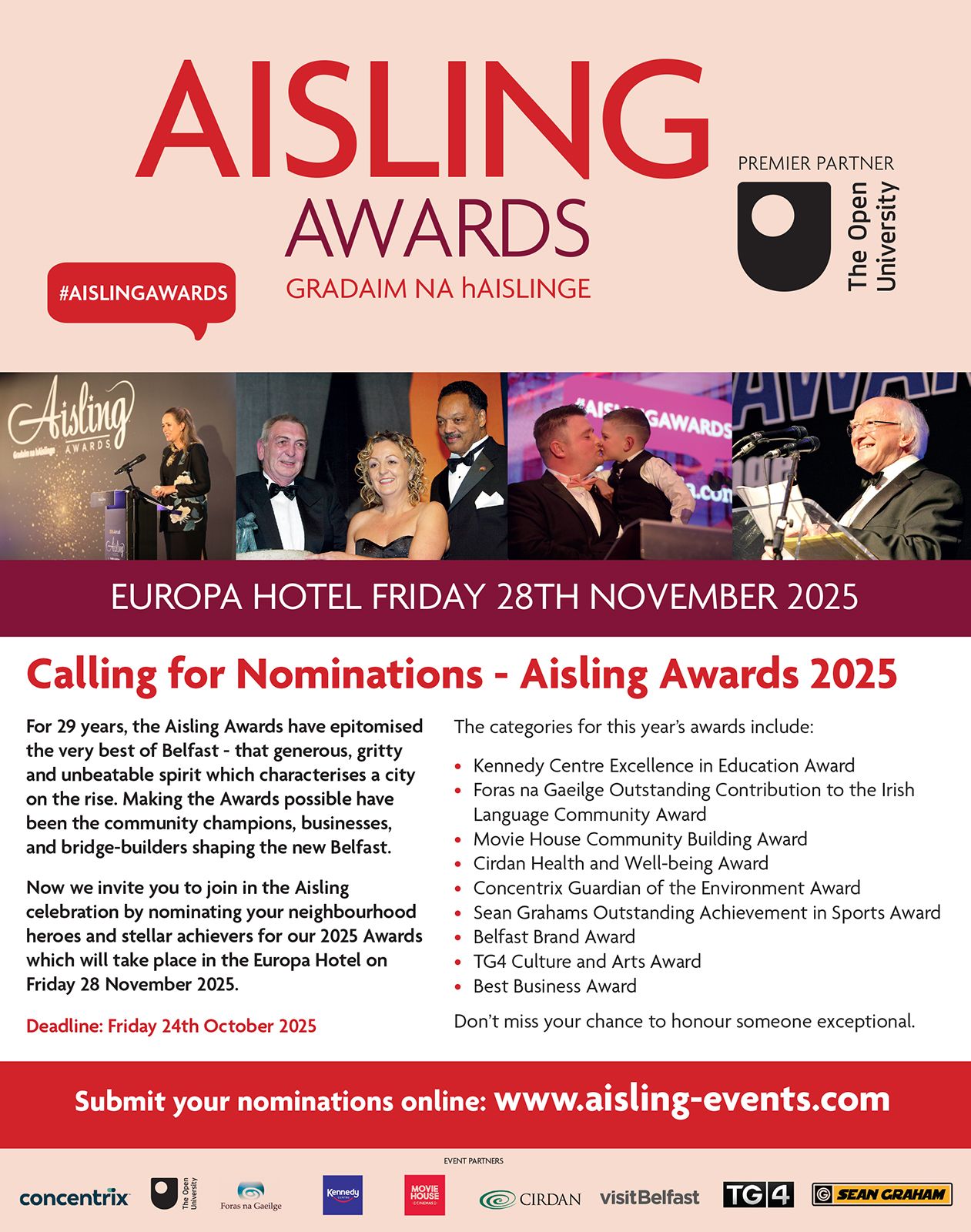
4
That’s the way it was in the 1970s when Martin and I first met the British government in an effort with others to negotiate a way to end the conflict. I was twenty three. Martin was about eighteen months younger than me. As it turned out we both lived well beyond the quarter of a century that both of us thought would be our life span.
I assume it might be difficult for anyone who didn’t experience conflict to understand why we thought the way we did. It seems very melodramatic when it’s written down like that.
But that’s the way it was. Hunted in our own place. On the run. Living on the edge.
If there was not quite a queue of would-be assassins – in and out of British uniform – there were certainly enough to justify our concerns. It was open season on republican activists. Not just for me or Martin. But many, many others as well. And for our opponents and enemies.
Contemporaries from all sides. Including some who were doing their best with deadly intent to fulfil our expectation. Not that we wanted to die. Far from it. That’s one fact to emerge from the pandemic crisis. Few of us want to die. Or to see others die.
The longer I live, the more I learn, the less I know. There are so many mysteries to and in our existence. That’s part of the joy of living. Martin would have been seventy on Saturday, May 23. He lived a very full life and he lived it well. There was a wonderful online celebration organised by the Martin McGuinness Peace Foundation (which you can watch below).
Well done to all involved. Commiserations again to Bernie and the entire McGuinness clann.
Martin’s death, his wake and funeral, touched many people. I’m sure others who had loved ones killed by the IRA don’t see it like that. Fair enough. They too deserve respect.
Their loved ones had lives worth living. Worth celebrating by their friends and families. We all have grieved after folks we love.
Not only people killed in the conflict. Parents and grandparents. Other family members. Mates. Neighbours.
In Ireland we have a tradition, steeped in our values, of gathering around a bereaved family to give them comfort and support.
CELEBRATE LIFE WHICH HAS ENDED
Part Christian with elements of another older pagan world we celebrate the life which has ended. Unless of course the dearly departed is a young person or someone deemed to have died before their time or in tragic circumstances. We have all experienced the shock of that. Of death by violence.
Death by suicide. Sudden death.

4
SEAT OF POWER: Martin McGuinness on the Stormont steps in 2008
And yet we get comfort from the prayers and sympathy and solidarity of those who support us.
And the wake and funeral and burial or cremation service are the occasion to give expression to all this. It’s telling the bereaved that they are not on their own.
We’re sorry for their troubles. Even though we go back to and get on with our own lives that coming together is important. Taking that time to visit, to pay our respects, is part of what we are.
That’s one aspect of the terrible deaths from the Coronavirus that many find so distressful. People dying alone. Especially older people in care homes or other congregated settings. Restrictions on funerals. Yes, it’s necessary and I support the restrictions, but it’s heart-rending.
I have missed funerals myself since the lockdown of people I know, friends, former prisoners.
It must be much, much worse for family members.
All these thoughts come together in this column as I reflect on these matters of life and death. The pandemic will pass. We don’t know when, but pass it will. It will affect some of us more than others. Just as the conflict did. Some who survive will never recover fully from the loss of a loved one. Or the circumstances of their death. Just like in the conflict.
THE LUCKY ONES
So Martin and I were the lucky ones. It’s still a wonder to me that he is gone and I’m still here. But that’s life. Our life begins every morning we wake up to a new day. So try to take the benefits of that with joy. Make the most of it. It won’t always be possible to see it like that. Not every day. But that’s okay also. It’s okay not to be okay. But try to be positive.
Be alert to the wee things. The birdsong. The light in the sky. The kindness of friends. And strangers. A nice meal. A dance. A good tune. A dog. Flowers. The wind. A laugh. Companionship. Love. Children. Trees. A good walk. Friendship. Nature. A good book. A wee drink if you can handle it.
Even if you don’t have any or all of these things you have yourself. That’s a big thing. Without yourself who or where would you be? So let’s try to be happy. Despite everything and because of everything. Remember we only die once. We live every day.
Let’s do our best to be our best and to make this a better place for others less well off than we are.

4
AS YOU WERE: In their younger days, Martin McGuinness and Gerry Adams


